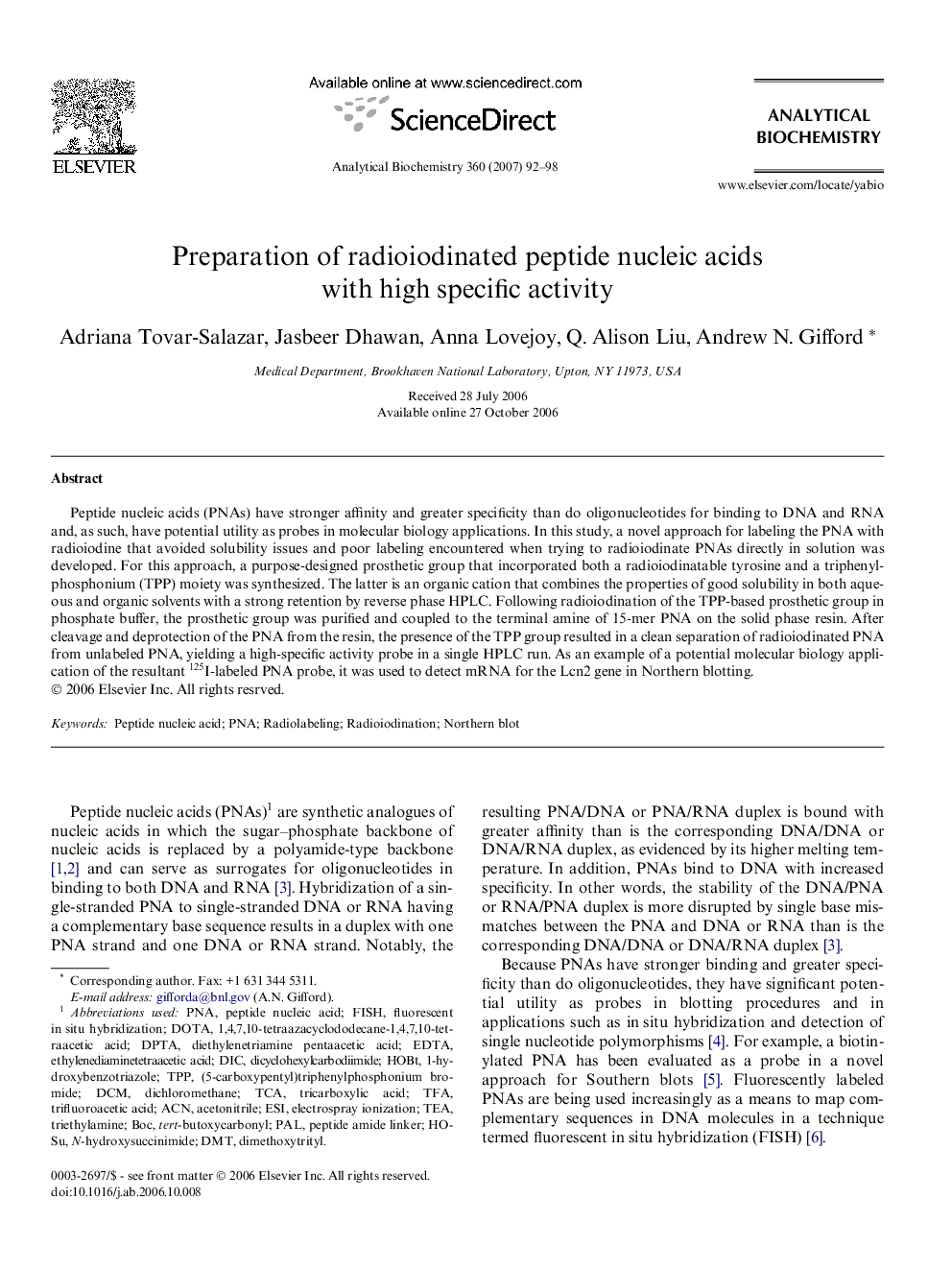| Article ID | Journal | Published Year | Pages | File Type |
|---|---|---|---|---|
| 1176456 | Analytical Biochemistry | 2007 | 7 Pages |
Peptide nucleic acids (PNAs) have stronger affinity and greater specificity than do oligonucleotides for binding to DNA and RNA and, as such, have potential utility as probes in molecular biology applications. In this study, a novel approach for labeling the PNA with radioiodine that avoided solubility issues and poor labeling encountered when trying to radioiodinate PNAs directly in solution was developed. For this approach, a purpose-designed prosthetic group that incorporated both a radioiodinatable tyrosine and a triphenylphosphonium (TPP) moiety was synthesized. The latter is an organic cation that combines the properties of good solubility in both aqueous and organic solvents with a strong retention by reverse phase HPLC. Following radioiodination of the TPP-based prosthetic group in phosphate buffer, the prosthetic group was purified and coupled to the terminal amine of 15-mer PNA on the solid phase resin. After cleavage and deprotection of the PNA from the resin, the presence of the TPP group resulted in a clean separation of radioiodinated PNA from unlabeled PNA, yielding a high-specific activity probe in a single HPLC run. As an example of a potential molecular biology application of the resultant 125I-labeled PNA probe, it was used to detect mRNA for the Lcn2 gene in Northern blotting.
